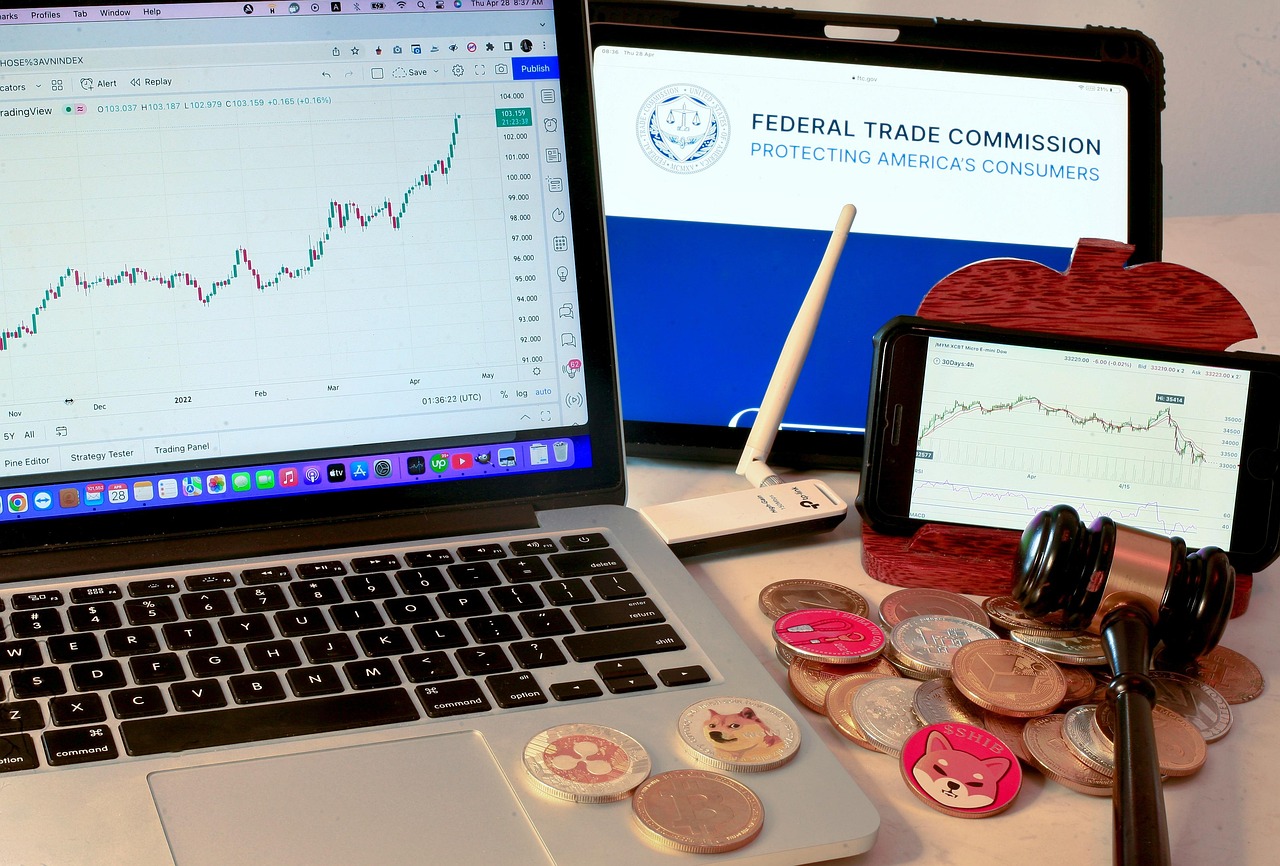In recent years, privacy coins have re-emerged as a hot topic in the crypto world. These digital assets are designed to keep transactions private and untraceable, giving users financial freedom and anonymity in an increasingly transparent blockchain landscape.
As governments push for tighter crypto regulations and centralized digital currencies (CBDCs) gain traction, the demand for privacy-focused alternatives is rising. Privacy coins offer something Bitcoin and other public blockchains can’t—true confidentiality.
2025 could become the defining year for privacy coins. With rapid technological upgrades, shifting investor sentiment, and renewed regulatory scrutiny, these digital currencies are once again in the spotlight.
What Are Privacy Coins?
Privacy coins are cryptocurrencies built to hide transaction details, such as sender, receiver, and transaction amount. Unlike Bitcoin, where anyone can trace transactions on the blockchain, privacy coins use advanced cryptography to ensure anonymity.
Core Privacy Technologies:
- Zero-Knowledge Proofs (zk-SNARKs, zk-STARKs): Allow users to prove a transaction is valid without revealing details about it.
- Ring Signatures: Mix a sender’s transaction with others to obscure its origin.
- Stealth Addresses: Create one-time addresses for each transaction, protecting the recipient’s identity.
- CoinJoin and Mixers: Combine multiple transactions into one, making tracking difficult.
Leading Privacy Coins:
- Monero (XMR): Uses ring signatures and stealth addresses.
- Zcash (ZEC): Built on zk-SNARKs for optional privacy.
- Dash (DASH): Offers a PrivateSend feature for anonymous transfers.
- Newcomers: Projects like Firo (FIRO) and Railgun (RAIL) are introducing modern privacy tools for DeFi and cross-chain transactions.
The Growing Demand for Financial Privacy
As more people use digital payments, concerns over data surveillance and censorship have grown. Financial privacy is no longer just a preference—it’s becoming a necessity.
1. Government Surveillance
Governments worldwide are increasing crypto monitoring to fight money laundering and tax evasion. This has led privacy-focused users to seek coins that protect personal information.
2. The Impact of CBDCs
Central Bank Digital Currencies offer convenience but little privacy. Transactions can be tracked or restricted. This push toward state-controlled finance has accelerated the move toward privacy coins.
3. Decentralized Alternatives
Privacy coins align with the original vision of crypto—freedom from centralized control. Users value the ability to transact without intermediaries or exposure to identity tracking.
4. Censorship Resistance
In countries with strict capital controls, privacy coins provide a safe way to store and transfer wealth discreetly.
Recent Market Trends and Performance (2024–2025)
Privacy coins have shown strong resilience despite being delisted from several major exchanges.
- Monero (XMR) maintained a steady market cap of around $2 billion, even during market corrections.
- Zcash (ZEC) saw renewed attention after integrating new zk-STARK technology.
- Firo (FIRO) and Railgun (RAIL) attracted DeFi users seeking anonymity.
Chart: Privacy Coin Market Cap Growth (2023–2025)
(Insert visual showing market cap increase from $4B in 2023 to $6.5B in 2025)
| Year | Market Cap (USD) | Growth % |
|---|---|---|
| 2023 | $4.0B | — |
| 2024 | $5.2B | +30% |
| 2025 (est.) | $6.5B | +25% |
Despite delistings, community-led trading platforms like Haveno and Bisq continue to support privacy coin liquidity, showing users’ commitment to privacy.
key features and common use cases of privacy coins
Privacy coins are a type of cryptocurrency that is designed to keep users’ names and transaction information safe. They do this by using features like zero-knowledge proofs, stealth addresses, and ring signatures that make it hard to track funds or connect them to people. Financial privacy lets people keep their transactions secret; safe cross-border payments lets people send money quickly and anonymously; and business confidentiality helps companies hide payment amounts and strategies. By hiding wallet balances and transaction flows, they also protect against theft or specific attacks.
In decentralized finance (DeFi), privacy coins protect personal and financial data by letting users connect with protocols without being identified. People value these coins because they offer safety, privacy, and independence in digital financial activities.
Benefits of Privacy Coins
There are a few things that make privacy coins different from other cryptocurrencies. The best thing about them is that they keep transaction information private, like who sent the money and how much. They protect your money by hiding your wallet balances and transaction flows, which makes theft, hacking, and specific attacks less likely. Privacy coins also make transactions impossible to censor, so people and companies can send and receive money without governments or institutions getting in the way.
They also support private business operations that keep secret payment information and strategies safe. Privacy coins improve data security in decentralized finance (DeFi) by letting users interact with protocols without giving out personal or financial data. Overall, these coins offer safety, freedom, and privacy, which makes them useful for people who value privacy in their digital finances.
Regulatory Considerations of Privacy Coins
Privacy coins are getting more attention from regulators because their increased privacy can be used for illegal activities like money laundering and tax dodging. Some countries have banned or limited privacy coins on exchanges because governments and financial officials are worried that these coins make it hard to track transactions. In some places, strong anti-money laundering (AML) and know-your-customer (KYC) rules are enforced, which can make it harder to use or get cryptocurrencies that focus on privacy.
There are also ongoing global talks about how to regulate digital currencies, which could change how privacy coins are traded, reported, or added to financial systems. Users and companies need to know about new local laws and rules because not following them could get them in trouble with the law or cost them money.
Innovation in Privacy Coin Technology
2025 is shaping up to be a breakthrough year for privacy technology.
- MimbleWimble & Lelantus: Enhance scalability while maintaining full anonymity.
- Zk-rollups: Allow efficient, private transactions on layer-2 networks.
- Cross-chain privacy: Tools like Railgun and Secret Network are integrating privacy into DeFi, NFTs, and smart contracts.
- DeFi and Web3 integration: Monero and Firo are exploring bridges that allow private swaps and staking without losing anonymity.
These upgrades make privacy coins more than just tools for secrecy—they’re becoming key players in Web3 finance.
Adoption and Real-World Use Cases
Privacy coins are no longer limited to niche users. They’re finding real adoption in everyday scenarios.
- Merchants: Several online stores now accept Monero and Zcash for digital goods.
- Remittances: Privacy coins allow cross-border transfers with low fees and no middlemen.
- Donations: Activists and journalists use them to receive funds without fear of exposure.
- Developing economies: Countries with weak banking systems see privacy coins as a lifeline for protecting savings.
Even though big exchanges are cautious, P2P platforms and decentralized wallets ensure that users can still trade and store these coins safely.
Risks and Controversies
Privacy coins are powerful tools—but not without controversy.
- Illicit Use: Some criminals use them for illegal transactions, which fuels government backlash.
- Regulatory Uncertainty: Laws differ by country, creating confusion for investors.
- Scalability Issues: Advanced cryptography can slow transaction speeds.
- Public Perception: Misunderstanding privacy coins as “criminal tools” affects their reputation.
However, advocates argue that privacy is not a crime, and technology itself is neutral—it depends on how people use it.
Expert Opinions and Market Forecasts for 2025
Crypto experts see both challenges and opportunities ahead.
- Analysts predict privacy coins could grow by 25–40% in 2025 as digital privacy becomes mainstream.
- Monero (XMR) is expected to remain dominant, with continued developer activity and community growth.
- Zcash (ZEC) might benefit from its selective disclosure feature, appealing to compliant investors.
- Emerging privacy tokens could play a key role in decentralized identity systems.
Conclusion
Privacy coins continue to play a vital role in the crypto world. They represent the true spirit of decentralization, offering freedom and control over one’s own data.
As we enter 2025, privacy coins stand at a crossroads—balancing innovation, regulation, and public trust. While governments seek transparency, users are demanding privacy. The future likely lies somewhere in the middle: privacy through choice and accountability.
If you value digital freedom and secure transactions, it’s worth keeping an eye on how privacy coins evolve this year.
FAQs
1. What makes privacy coins different from Bitcoin?
Privacy coins hide transaction details, while Bitcoin’s ledger is fully public and traceable.
2. Are privacy coins legal in 2025?
Legality varies by country. Some nations restrict their use, while others allow them with regulations.
3. Why are exchanges delisting privacy coins?
Exchanges face government pressure to comply with anti-money-laundering laws.
4. What are the safest privacy coins to invest in?
Monero (XMR) and Zcash (ZEC) remain the most trusted due to their active development and community support.
5. How do privacy coins protect user identity?
They use cryptographic tools like ring signatures and stealth addresses to mask sender and receiver data.
6. Can privacy coins be traced by governments?
Not easily. Some tools can detect patterns, but complete tracing remains extremely difficult.
7. Is Monero still the leading privacy coin in 2025?
Yes, Monero leads in both adoption and developer activity.
8. What are the risks of holding privacy coins?
Regulatory risks, exchange delistings, and lower liquidity compared to major coins like Bitcoin.
9. How can investors buy and store privacy coins safely?
Use decentralized exchanges (DEXs) or reputable P2P platforms. Store coins in hardware wallets that support them.
10. Will privacy coins survive future crypto regulations?
Yes—developers are adapting by creating privacy features compatible with transparency laws.
Disclaimer
This content is for informational purposes only and does not constitute financial or investment advice. Cryptocurrency markets are volatile, and privacy coins may face regulatory risks. Always do your own research or consult a licensed financial advisor before making investment decisions.



